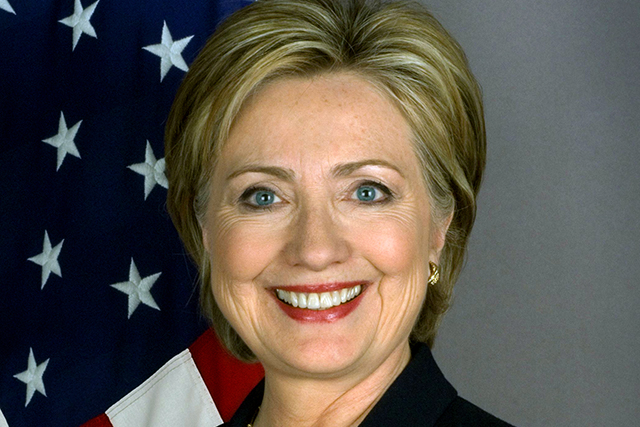
Photo courtesy of US Department of State, Wikipedia
Hillary Clinton launched a second presidential bid for the White House on Sunday in a video released online. Unlike eight years ago, she made no mention of her colorful resumé in Washington, or about being the nation’s first female president. In fact, Clinton only appears toward the end of the video, which instead focused on average American voters as they prepare for their futures.
The video featured a black couple, an Asian-American woman and two men who say they are getting married, in addition to featuring middle-class white people.
“Everyday Americans need a champion. And I want to be that champion,” Clinton announced.
Major themes of her campaign include helping the middle class and reducing income inequality, but her view on same-sex marriage is arguably one of the most interesting aspects of her campaign.
During an interview with NPR as a presidential candidate in 2008, Clinton’s views on marriage equality showed that she favored civil unions and a state-by-state approach instead.
“For me, marriage had always been a matter left to the states. And in many of the conversations that I and my colleagues and supporters had, I fully endorse the efforts by activists who work state-by-state and in fact that is what is working,” Clinton told Terry Gross last year.
Ten months later, in what seems to be a shift, Clinton is urging the Supreme Court to rule in favor of nationwide same-sex marriages as a “constitutional right” at the end of June, and a large percentage of Americans have raised their eyebrow to the fact that Clinton’s shift in stance comes only after speculation of her announcement to run for president last year.
When it comes to state and federal rights, the marriage debate can get pretty divisive. It is important to keep in mind that Clinton is human, as are all politicians. Public figures are allowed to have changed views on controversial topics if they find that their politics reflect a changing societal view that suits the interest of nationwide civil and political equality. Since she was responding to the needs of a changing nation, one where LGBT people are becoming more visible, I believe she is functioning as a public servant: a voice for the people.
Last year, Gross implied that Clinton had political interest in changing her stance on marriage equality, to which Clinton replied:
“I think you are trying to say that I used to be opposed [to gay marriage], and now I am in favor, and I did it for political reasons. And that’s just flat wrong. So let me just state what I feel like you are implying and repudiate it. I have a strong record. I have a great commitment to this issue and I am proud of what I’ve done and the progress we're making.”
Although Clinton’s support of LGBT people's right to marry comes after other Democrats, she will enter the race with a strong backing: 81 percent of Democrats said they would consider voting for her, according to a CBS News poll conducted in February.
This number alone is enough to trump her potential rivals for the Democratic nomination, which include former Gov. Martin O’Malley of Maryland, former Virginia Senator Jim Webb and Vermont Senator Bernard Sanders.
O’Malley, who has been a long-standing supporter for same-sex marriage, made a seemingly snarky comment on Wednesday about Clinton’s change of heart on the issue by tweeting, “The dignity of every person tells us that the right to marry is not a state right, it is a human right.”
Again, politicians are human beings who have strengths and weaknesses — some more than others – but just like the average citizen, they deserve to be praised for what they do really well. In this instance, I support Clinton’s re-evaluated politics on the issue of same-sex marriage.





